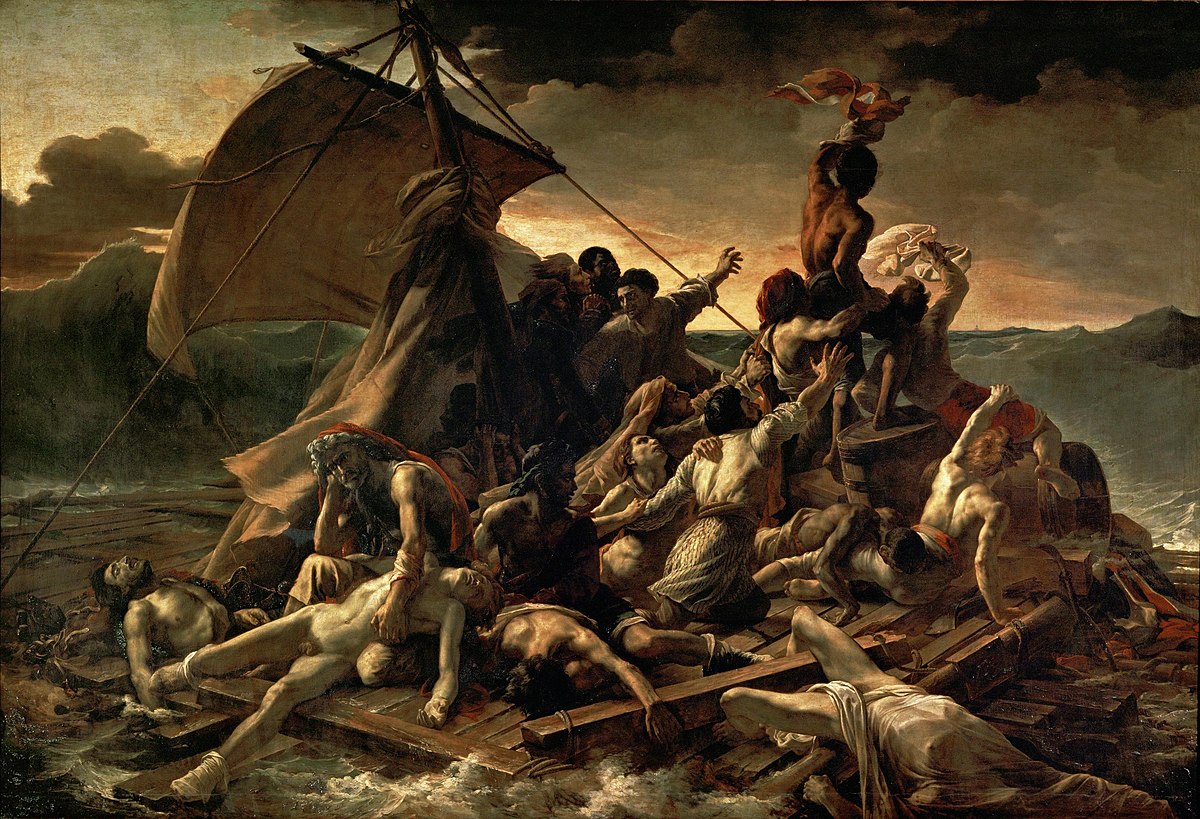I have been looking for this for some time, a modern performance of the revised score (rev. 1990) of Hans Werner Henze's oratorio, Das Floß der Medusa (1967).
Hans Werner Henze’s oratorio, Das Floß der Medusa, with a text by Ernst Schnabel, will be performed by the SWR Symphonieorchester and Peter Eötvös on 15 November at the Konzerthaus in Freiburg and again on 17 November at Hamburg Elphilharmonie. The work was inspired by the 1816 maritime disaster and shares a name with Théodore Géricault’s painting of the event.
In 1816, the French frigate Méduse ran aground off the west coast of Africa. A shortage of lifeboats meant a hastily constructed raft was used in an attempt to ferry 150 survivors to shore. However, soon after setting off on the 30 mile journey, it became clear that towing the raft was impractical and the decision was made to cut the connecting ropes. The rudderless and ill equipped raft was abandoned to its fate.
Henze uses the tragic events to explore the moment where morality, law and social convention dissolve. In today’s climate, the work resonates as a critique on the response to the refugee crisis in Europe, with parallels to the thousands of lives lost at sea.
Hans Werner Henze: Das Floß der Medusa: A fight for survival
The stage is divided in two between the living and the dead. On the side of the dead is a soprano who attempts to lure survivors with her siren song. Jean-Charles, a cabin boy, represents the living and their struggle to remain alive. In the course of the performance the chorus crosses the stage from the side of the living to the side of the dead. Charon, named after Hades’ ferryman in Greek mythology, is the narrator and slips frequently between the two worlds.
Henze transfers the mood and characters from Géricault’s iconic painting to his music, for example using the woodwind section to underscore the living chorus, with ‘breath like noises’ and screams. The journey to the side of the dead is accompanied by the string section.
I had Théodore Géricault’s magnificent painting, The Raft of the ‚Medusa‘, clearly in my mind’s eye when I started work on the music. The pyramid-like pile of human figures in the painting, which is now in the Louvre in Paris, is surmounted by our hero, the mulatto Jean-Charles, waving a fragment of tattered red cloth at a boat that is seen sailing past the distance and that signifies hope and perhaps also salvation – an idea present in our own piece from the very outset. – Hans Werner Henze
As part of ‘Elbphilharmonie+’ there will be a lecture-performance on 16 November featuring a string quartet made up of musicians from the SWR Symphonieorchester who will trace the experience of escape through the music of Béla Bartók and Emin František Burian interjected with readings from texts written by refugees. The concert featuring Henze’s Das Floß der Medusa will be broadcast on SWR 2 on 26 November. In March 2018, Dutch National Opera will present staged performances of the work.

